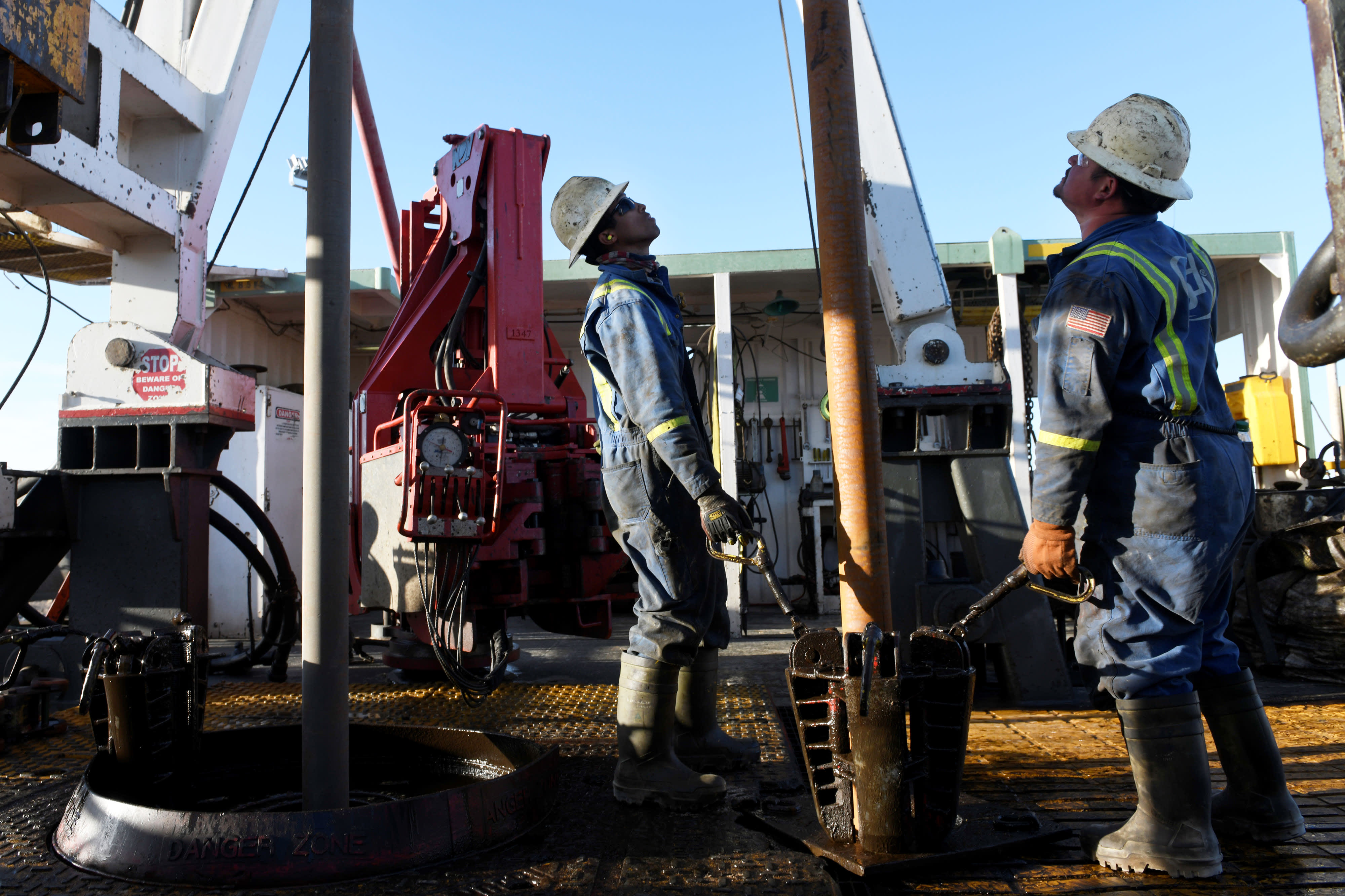Oil prices continued their steep decline on Thursday, with U.S. West Texas Intermediate crude falling to a 13-month low below $47 per barrel, as fears of the coronavirus outbreak, and what it could mean for crude demand, continues to batter prices.
“Current forecasts of crude oil demand have fallen off a cliff. As China is the largest consumer in the world, the unclear impact of the Corona virus is driving WTI lower and lower,” KKM Financial founder and CEO Jeff Kilburg said to CNBC. “As China is the largest consumer in the world, the unclear impact of the Corona virus is driving WTI lower and lower,” he added.
U.S. West Texas Intermediate fell 4.3% to trade at $46.63 per barrel, bringing the week’s decline to more than 12%, and the year-to-date loss to more than 23%. WTI is pacing for its fifth straight session of losses, and has tumbled even deeper into bear market territory, sitting 29% below its 52-week intraday high level of $66.60, reached last April.
A drilling crew secures a stand of drill pipe into the mouse hole on a drilling rig near Midland, Texas February 12, 2019.
Nick Oxford | Reuters
“The demand outlook for the crude oil and refined products keeps taking hit after hit,” Again Capital’s John Kilduff said. “The entirety of the key Asian oil consumption region is reeling from the coronavirus outbreak, and oil prices are suffering the most of all asset classes,” he said.
While lower oil prices can be good for consumers at the pump, it can be a warning sign for the global economy, since softer demand can mean a slowdown in economic growth.
As oil continues to slide, all eyes are now on next week’s OPEC+ meeting, where the cartel and its allies will convene in Vienna from March 5-6.
But not everyone is convinced that the organization will be able to provide a floor for prices. “OPEC+ is almost powerless, at this point, to address or react to the cratering of demand,” Kilduff said.
On Wednesday the XLE, an ETF that tracks the energy sector, fell to an almost 10-year low with all but two components in the index trading in bear market territory.
RBC noted the big impact that continuously depressed oil prices will have on energy giants.
“For the Global Integrateds, facing a downturn across all business segments, and we see headwinds to consensus earnings estimates for some companies, to the tune of 20-25% based on current forward curve commodity prices,” the firm said. “Elsewhere, in E&P [exploration and production] and OFS [oilfield services], many companies have hedging in place for H1/20, or already low expectations. If commodity prices remain weak though, risks of course mount,” the firm said.
– CNBC’s Michael Bloom contributed reporting.
Subscribe to CNBC PRO for exclusive insights and analysis, and live business day programming from around the world.
